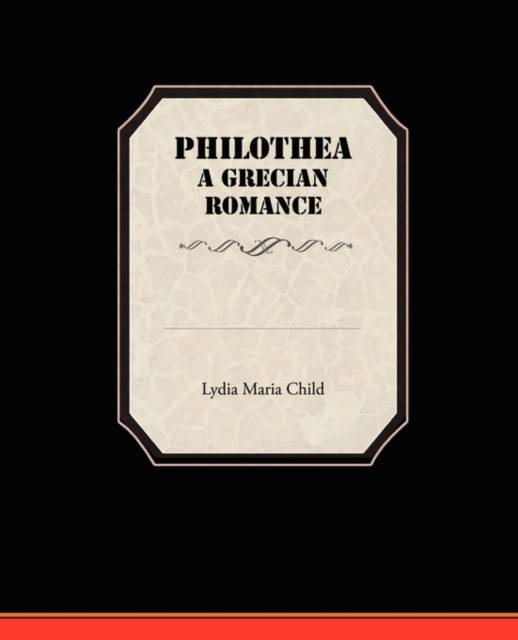
- Afhalen na 1 uur in een winkel met voorraad
- Gratis thuislevering in België vanaf € 30
- Ruim aanbod met 7 miljoen producten
- Afhalen na 1 uur in een winkel met voorraad
- Gratis thuislevering in België vanaf € 30
- Ruim aanbod met 7 miljoen producten
Zoeken
Omschrijving
Lydia Child was an American abolitionist, women's rights activist, opponent of American expansionism, and Indian rights activist. She is most remembered for her poem Over the River and Through the Woods. Lydia Child believed that interracial marriage would help the races come together with understanding and sympathy. She felt her novel could show historical wrongs in the hope of changing the state of racial relations. This social commentary will elicit discussions on 19th century racial relations as well as the current state of racial relations. Philothea: A Grecian Romance begins, "The white columns of the lofty Parthenon stood in distinct relief against the clear blue sky; the crest and spear of Pallas Promachos glittered in the refulgent atmosphere, a beacon to the distant mariner; the line of brazen tripods, leading from the Theatre of Dionysus, glowed like urns of fire; and the waters of the Illyssus glanced right joyfully, as they moved onward to the ocean. The earth was like a slumbering babe, smiling in its sleep, because it dreams of Heaven. In the most ancient and quiet part of the city, not far from the gate Diocharis, was the modest mansion of Anaxagoras; and at this tranquil hour, the grand-daughter of the philosopher, with her beloved companion Eudora, stood on the roof, enjoying the radiant landscape, and the balmy air."
Specificaties
Betrokkenen
- Auteur(s):
- Uitgeverij:
Inhoud
- Aantal bladzijden:
- 198
- Taal:
- Engels
Eigenschappen
- Productcode (EAN):
- 9781438524924
- Verschijningsdatum:
- 8/09/2009
- Uitvoering:
- Paperback
- Formaat:
- Trade paperback (VS)
- Afmetingen:
- 190 mm x 235 mm
- Gewicht:
- 349 g

Alleen bij Standaard Boekhandel
+ 56 punten op je klantenkaart van Standaard Boekhandel
Beoordelingen
We publiceren alleen reviews die voldoen aan de voorwaarden voor reviews. Bekijk onze voorwaarden voor reviews.











